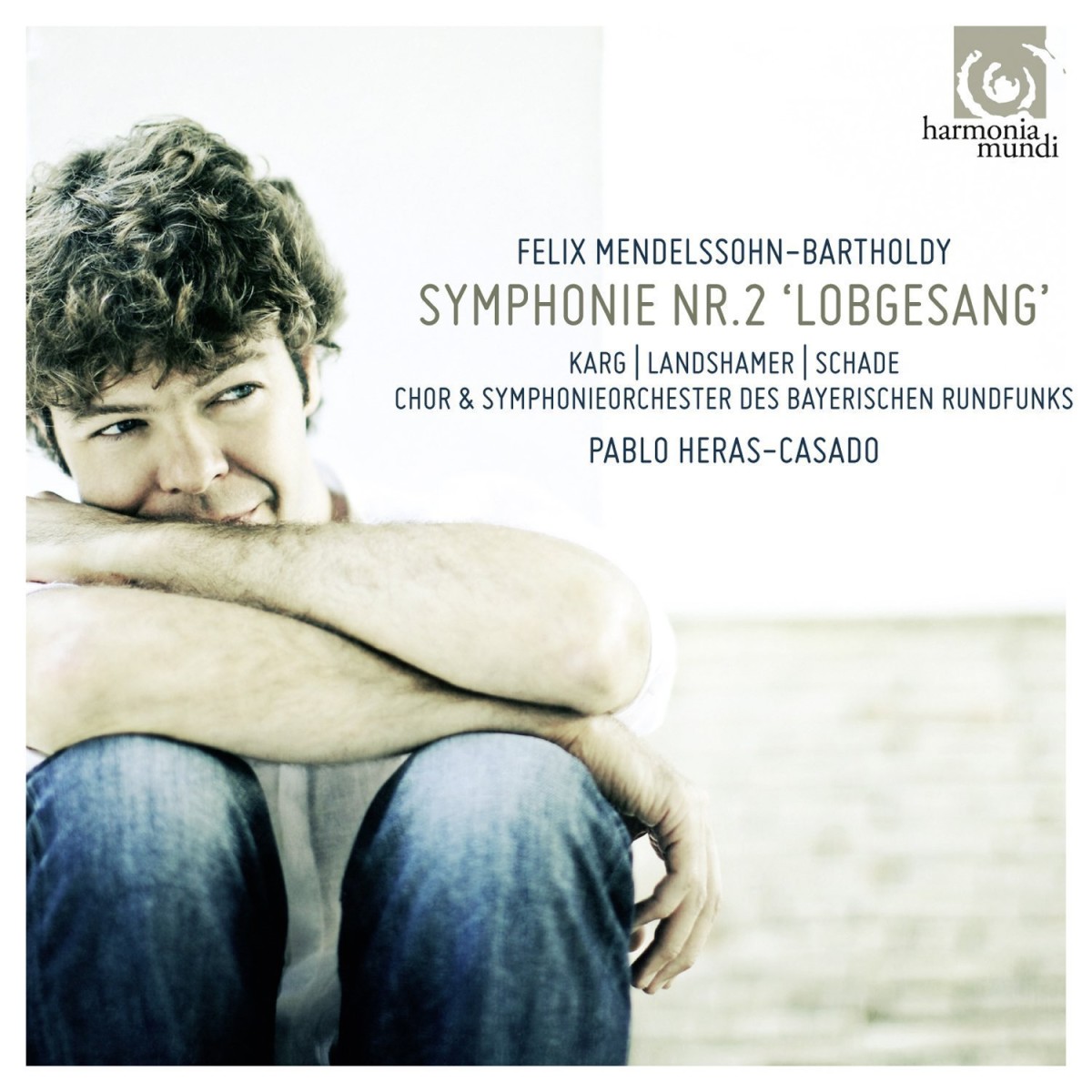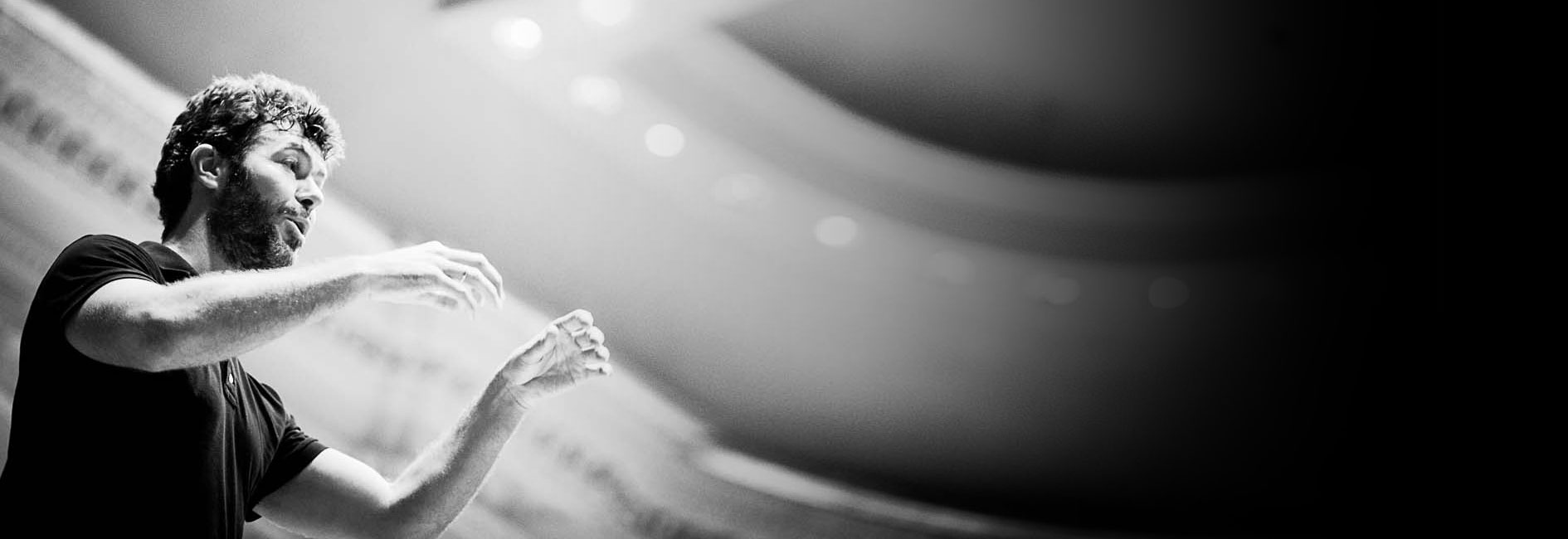
Mendelssohn Symphony No.2
Description
Named 2014 Conductor of the Year by Musical America, Pablo Heras-Casado has made his name exploring repertoire that is outside of the mainstream. For his second recording on the harmonia mundi label, Heras-Casado conducts Mendelssohn’s Symphony No.2, nicknamed Lobgesang (Hymn of Praise). Commissioned to commemorate the 400th anniversary of the invention of the printing press, the work is a massive symphony-cantata for soloists, chorus and orchestra. Although clearly inspired by Beethoven’s ninth, the comparison did the work no favors with critics of the time and eventually it fell into an unjust obscurity. The symphony consists of a three-movement instrumental ‘overture’ followed by ten movements for orchestra, soloists and choir set to texts from the Lutheran bible. Joined by sopranos Christiane Karg and Christina Landshamer and tenor Michael Shade, Heras-Casado leads the Bavarian Radio Symphony Orchestra and Choir in a powerful performance of this sweeping vocal and choral epic.
Label: Harmonia Mundi
Release date: Mar 11, 2014
Reviews
«That puts Orozco-Estrada, Bosch, and Heras-Casado at the top of the list. The perfectly fine Ashkenazy has been available only as part of a complete set of the symphonies. The Bosch is in a league of its own for beautiful SACD sound and a swift, soft-grained yet lean approach, with just the slightest touch of “early music” phrasing to detract from the romance of it. The Orozco-Estrada and Heras-Casado performances are extremely similar and uncontroversial in their approach. Both feature fine soloists, beautiful renditions of the famous chorale Nun danket alle Gott , and lively, emotionally engaged playing in the three orchestral movements . . .
I think it hard to imagine how one could fail to be swept up by the great trombone fanfare which opens the symphony and unifies it with such subtlety—and deeply moved by all which follows. Mendelssohn is lucky once again to be considered a great symphonic composer, and lucky that this hybrid work has made it back onto the concert stage. But he is not so lucky as the listener. This is memorable music, exciting, noble and pure of heart.»
Steven Kruger – Arkiv Music
«This week I had the chance to listen to a new recording that should by rights redress this balance – Pablo Heras-Casado leads the choir and orchestra of Bavarian Radio, together with a team of flawless soloists, in a thrilling performance that sheds new light on a work I thought I knew.
The opening motif is a tricky one to handle; so simple in its own right, yet the linchpin of the entire work. Here it is subtly phrased rather than declaimed dramatically; Heras-Casado is evidently keeping his powder dry, treating this initial statement as the seed from which the rest of the performance grows.
The subsequent Allegro sets a cracking pace, with the dotted rhythms tucked in crisply, but there’s somehow still room for the internal details to come out of the texture in a way I’ve never heard before. This attention to these details (which so could easily be drowned in the richness of the choir and brass) turns out to be a running theme throughout this performance, and something that sets it apart from any others I’ve heard.
This is not a conspicuously “period” performance– the instruments are modern – but it’s nevertheless a taut, lean one. Any fears that this might be a self-indulgent wallow of the kind that have historically given Mendelssohn’s choral works an undeserved reputation as bloated Victoriana are quickly dispelled.
For me the first entry of the chorus after the extended symphonic prelude makes or breaks this piece. Often, the long wait before a bold forte entrance causes choirs to come in too enthusiastically. Here everything is underpinned wonderfully by the organ’s sonorous pedal register, which lends gravitas without being overpowering. This is a particularly nice touch, and indeed the organ forms a welcome solid base to many other passages throughout the work. Over all this, once again the details shine through – the rhythmic motif in the strings is clearly audible, helping to maintain a sense of drive to this initial entry . . .
Heras-Casado does allow himself one moment of slight self-indulgence – in the unaccompanied first verse of the chorale “Nun danket alle Gott” one can sense that he is letting the choir enjoy their moment in the spotlight. This sensitive and expressive episode sets the stage very well for the majestic second verse, but it’s the beginning of the next number that really caught my attention. The use of the low strings (violas, divisi cellos and basses) to accompany the tenor is a stroke of genius in terms of orchestration, and the Bavarians’ sound is as rich and dark as one could wish for.
The bottom line? Simply put, this is a recording that made me remember why I love this piece. Mendelssohn’s Bach-inspired grasp of polyphony shines through with total clarity, and a work that can sometimes seem unwieldy here has an inexorable logic driving it from start to finish.»
Presto News

